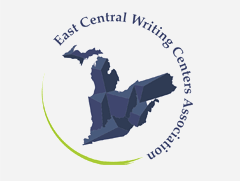Presentation/Proposal Title
The Complexities of Social Justice and Writing Centers: A Reflection
Type of Presentation/Proposal
Individual Presentation or Paper
Start Date
5-4-2019 2:00 PM
End Date
5-4-2019 3:00 PM
Keywords
Social Justice; Reflections; Critical Theory
Description
Writing Centers have often positioned themselves as spaces championing inclusion, social justice, and liberatory practices. But as Elizabeth Boquet, points out in "'Our Little Secret': A History of Writing Centers Pre- to Post-Open Admissions," these ideals are often complicated, if not contradicted, in practice. I was confronted by these contradictions at IWCA in 2018 at the Peachtree Station MARTA platform. While ascending the stairs, I had to make a choice about how to address a man sleeping across the steps. He was between myself (and a student) and the top of the stairs. But more pointedly, between me and an elegant conference hotel where I would present in the "social justice" strand on a project studying and assisting food-and-housing-insecure residents of Indianapolis. As a Writing Center Administrator, I was not only responsible for my moral decision in that moment, but also that of a student who would follow my lead.
The difficult questions posed by this moment, among others within Writing Centers, will be addressed. The framework of the presenter-- a University that prides itself as a model of an urban and written critical literacies center, but situated at a mostly-white, middle-class university in a poor, mostly black urban center-- will serve as a jumping-off-point for these critical discussions. How, if at all, can Writing Centers be authentic vehicles for social justice among communities? Participants will discuss methods such as programs, like community writing centers-- shifts in perspective, like whose voice gets representation in decisions-- and more.
The presentation will introduce a concept based upon the positioning of the presenter (provided in the description), and the situation (also detailed in the description), and will incorporate significant discussion based upon that, and then the presenter's decision and personal struggle with that decision. That decision, along with a bit more context, will be the segue for the broader discussion of writing centers and writing center practitioners as vehicles for social justice and disruption, or places of social reification and maintenance, based on the work of Boquet, Grimm, Rosculp, Mitchell, as well as Corbett and Fikkert.However, the goal is that the bulk of the time will be spent in discussion of the moral implications of our actions as Writing Centers, from how we respond to people in our daily lives to the venues we choose for our conferences to the food we utilize in those conferences to the ways we divvy out our time. Anything about writing centers theory and practice is meant to be put out on the table for a critical eye.
The Complexities of Social Justice and Writing Centers: A Reflection
Deeds Boardroom
Writing Centers have often positioned themselves as spaces championing inclusion, social justice, and liberatory practices. But as Elizabeth Boquet, points out in "'Our Little Secret': A History of Writing Centers Pre- to Post-Open Admissions," these ideals are often complicated, if not contradicted, in practice. I was confronted by these contradictions at IWCA in 2018 at the Peachtree Station MARTA platform. While ascending the stairs, I had to make a choice about how to address a man sleeping across the steps. He was between myself (and a student) and the top of the stairs. But more pointedly, between me and an elegant conference hotel where I would present in the "social justice" strand on a project studying and assisting food-and-housing-insecure residents of Indianapolis. As a Writing Center Administrator, I was not only responsible for my moral decision in that moment, but also that of a student who would follow my lead.
The difficult questions posed by this moment, among others within Writing Centers, will be addressed. The framework of the presenter-- a University that prides itself as a model of an urban and written critical literacies center, but situated at a mostly-white, middle-class university in a poor, mostly black urban center-- will serve as a jumping-off-point for these critical discussions. How, if at all, can Writing Centers be authentic vehicles for social justice among communities? Participants will discuss methods such as programs, like community writing centers-- shifts in perspective, like whose voice gets representation in decisions-- and more.
The presentation will introduce a concept based upon the positioning of the presenter (provided in the description), and the situation (also detailed in the description), and will incorporate significant discussion based upon that, and then the presenter's decision and personal struggle with that decision. That decision, along with a bit more context, will be the segue for the broader discussion of writing centers and writing center practitioners as vehicles for social justice and disruption, or places of social reification and maintenance, based on the work of Boquet, Grimm, Rosculp, Mitchell, as well as Corbett and Fikkert.However, the goal is that the bulk of the time will be spent in discussion of the moral implications of our actions as Writing Centers, from how we respond to people in our daily lives to the venues we choose for our conferences to the food we utilize in those conferences to the ways we divvy out our time. Anything about writing centers theory and practice is meant to be put out on the table for a critical eye.


